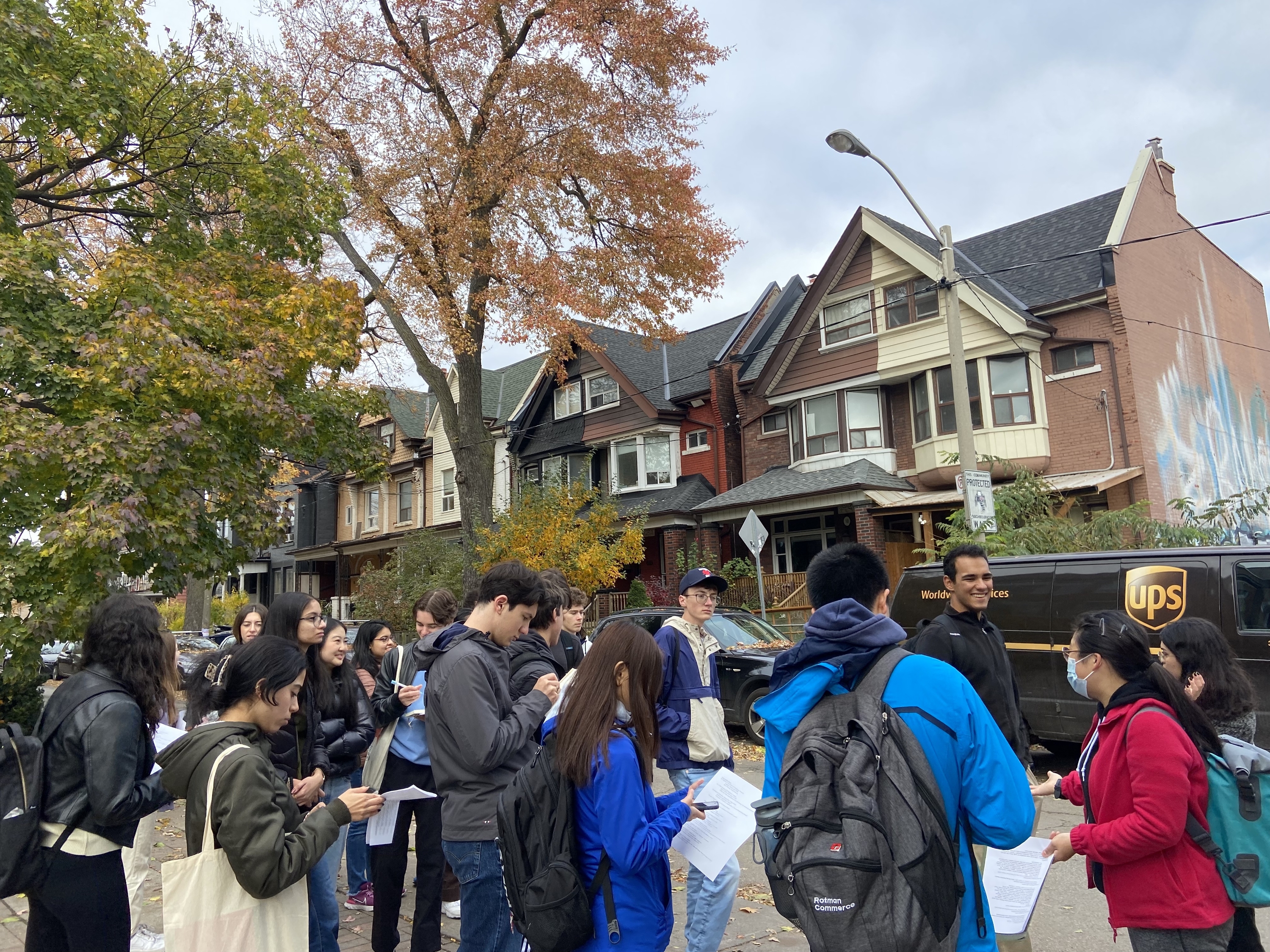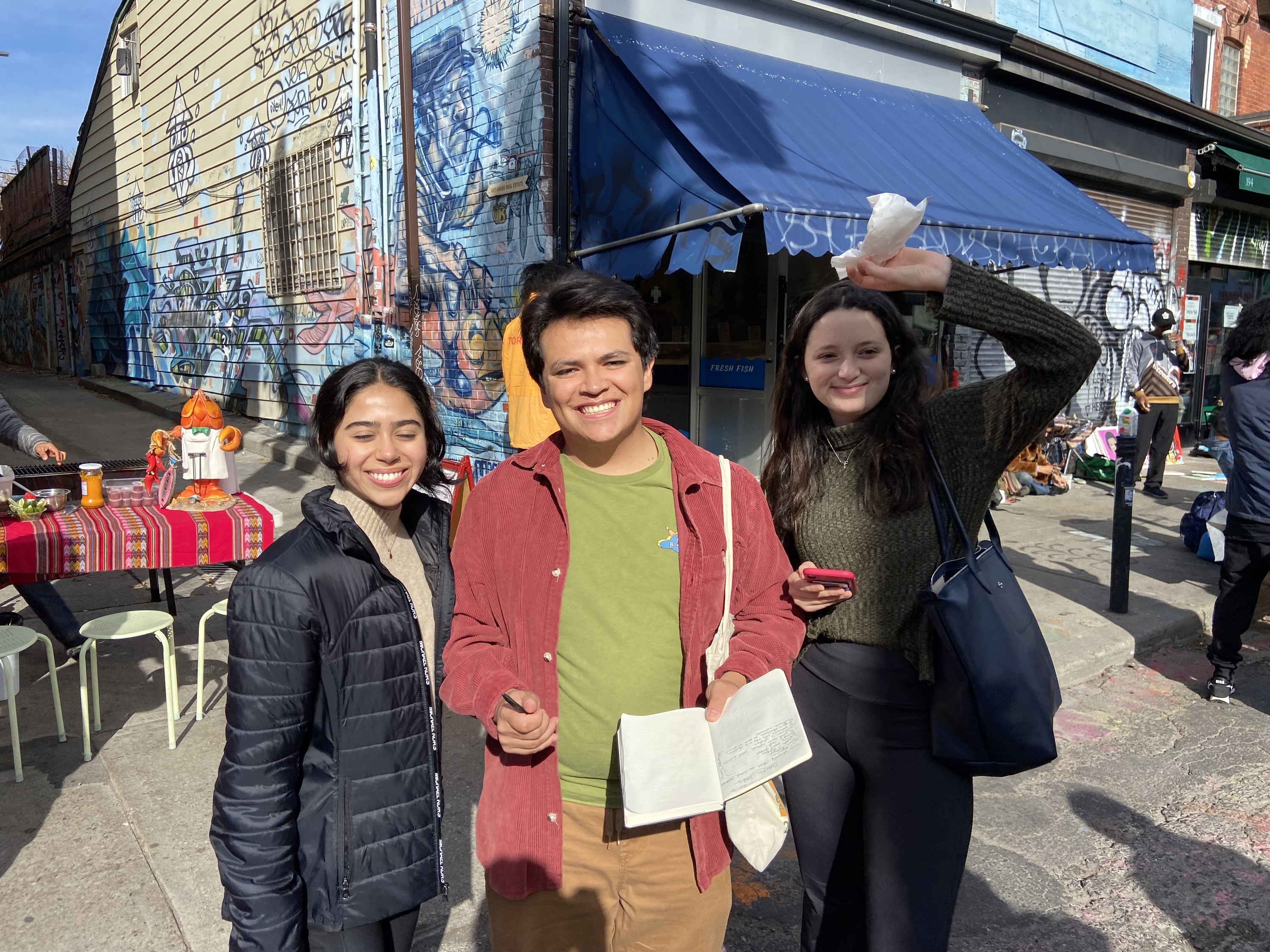
Munk One students conduct an ethnography of Kensington Market
On November 3rd, Munk One students had the opportunity to conduct an ethnography of Kensington Market for MUN105: Global Problem Solving: Laboratory Opportunities. In this project, students were tasked with investigating how Kensington Market is affected by and contributes to the advancement of UN Social Development Goals: No Poverty; Good Health and Well Being; Quality Education; Life on Land; and Peace, Justice, and Strong Institutions. Students in MUN105 are arranged into groups, with each group being responsible for researching one of the above SDG Goals.
 To introduce students to ethnographic methodologies, Professor Donald Kingsbury (Munk One Acting Director), invited Dr. Daniel Tubb, a Professor of Anthropology at the University of New Brunswick, to speak to them in class. Professor Tubb, who worked as a miner for almost two years in Colombia while conducting an ethnography of gold, presented an overview of the best practices and steps students should take to produce a successful ethnography.
To introduce students to ethnographic methodologies, Professor Donald Kingsbury (Munk One Acting Director), invited Dr. Daniel Tubb, a Professor of Anthropology at the University of New Brunswick, to speak to them in class. Professor Tubb, who worked as a miner for almost two years in Colombia while conducting an ethnography of gold, presented an overview of the best practices and steps students should take to produce a successful ethnography.
The following week, the class took a guided tour of Kensington Market, where Bernice Cheung, a Ph.D. candidate in Ethnomusicology at the Faculty of Music, explained the key historical, political, economic, and sociocultural characteristics of the market while walking through its streets. “Before Bernice’s tour, I was clueless about how I would link Kensington Market to education,” expressed Alonso Muñoz, a student on Team Quality Education, “but her description of the community’s culture allowed me to understand that education in Kensington goes beyond the classroom and takes place in the streets, businesses, and through community-led events.”
Over the weekend, students visited Kensington Market independently to observe its social processes and engage with the community. Many students visited the market’s last Pedestrian Sunday of the year, where the community takes to the streets to play music, learn about other cultures, eat, and enjoy some sun before winter. In this experience, Team Quality Education student Micaela Sandoval, shared that “the interviews we were conducting became meaningful and honest conversations that revealed how people were also genuinely interested in learning from us,” which vividly depicted Kensington Market as a learning space.
Finally, students presented their findings in groups to the class. From Team No Poverty’s alarming findings on gentrification in the neighborhood to Team Life on Land’s observations of Kensington’s efforts to depart from car-dependent infrastructure, students presented a diverse range of problems with interdisciplinary solutions. For Kaelem Moniz, a student on Team No Poverty, participating in this project was a “great opportunity to engage with the surrounding community and gain a deeper understanding of how our society functions and leaves some behind.”
Munk One students took their ethnography to another level. Rather than seeing it as just another assignment, they perceived it as a critical research experience, rare in first year. “Being able to practice ethnographic research as a first-year in a neighborhood as complex, multicultural, and socially diverse as Kensington Market was a true privilege,” said Lara Devotto, who worked on the Quality Education team. Her peer, Agata Capomasi, agreed with her statement, adding that the “ethnographic research opened [her] eyes to the beauty of Kensington Market’s community and the cultures it preserves.”

